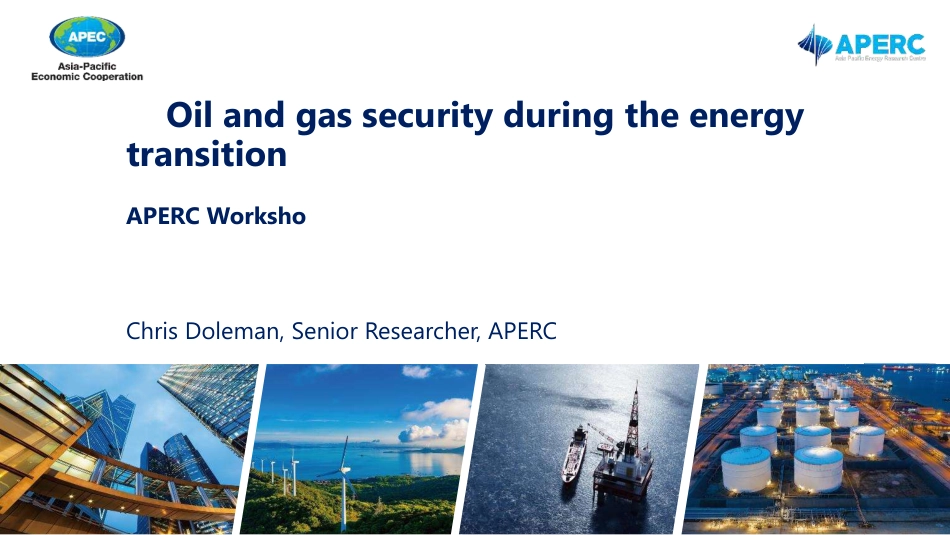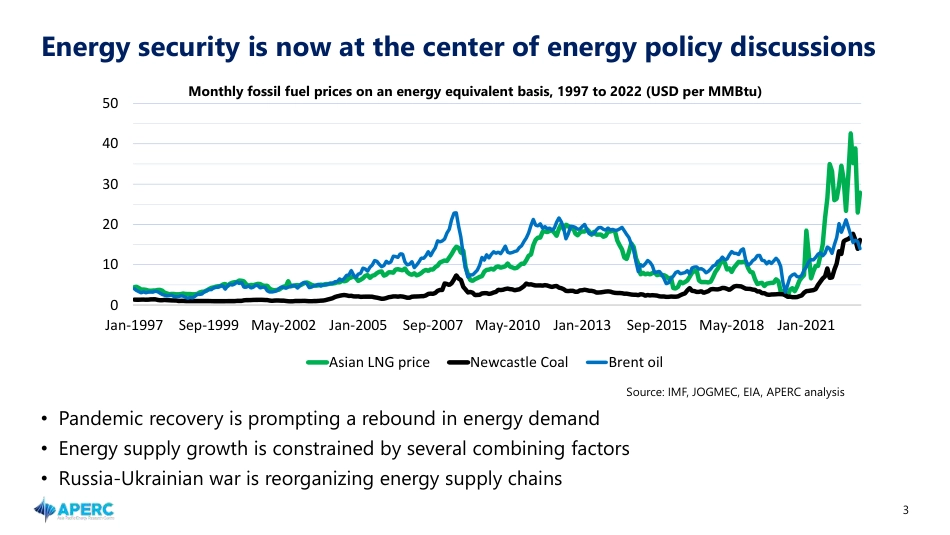Oil and gas security during the energy transitionChris Doleman, Senior Researcher, APERCAPERC Worksho2Emerging trends3Energy security is now at the center of energy policy discussions• Pandemic recovery is prompting a rebound in energy demand• Energy supply growth is constrained by several combining factors• Russia-Ukrainian war is reorganizing energy supply chainsMonthly fossil fuel prices on an energy equivalent basis, 1997 to 2022 (USD per MMBtu)Source: IMF, JOGMEC, EIA, APERC analysis 0 10 20 30 40 50Jan-1997Sep-1999 May-2002Jan-2005Sep-2007 May-2010Jan-2013Sep-2015 May-2018Jan-2021Asian LNG priceNewcastle CoalBrent oilSevere weather is exacerbating APEC’s energy security challenges4• Extreme temperatures elevate demand profiles while challenging fuel supply availability and reliability• Storm surges disrupting just-in-time deliveries, damaging infrastructure• Droughts reducing fuel and coolant availabilitySource: MISO• Prioritisation of domestic energy endowments for domestic use• Energy export bans: Indonesia’s month-long coal export ban (January 2022)• Australia considering gas reservation• China increasing coal productive capacity to rely less on imports• Securing the upstream through direct investments• Japan investing in LNG projects, and natural gas supply in the US• Governments are rethinking their long-term energy plans to reduce reliance on oil and gas imports• Viet Nam shifting long-term power mix away from oil, gas and coal and towards renewables5Governments are putting energy security into their own hands6• Governments participate in or guide LNG supply procurement; Singapore is chartering stand-by FSU, FSRU capacity• More regulation to wholesale and retail electricity markets• Price caps for wholesale ...



